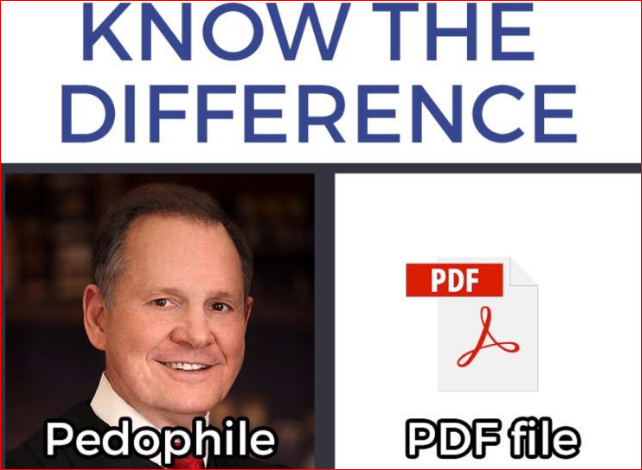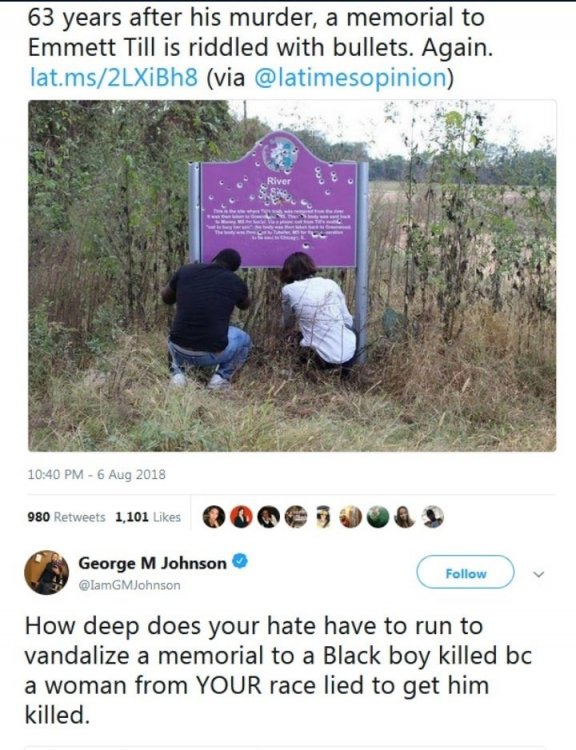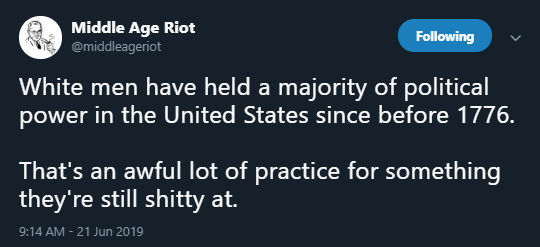Leaderboard
Popular Content
Showing content with the highest reputation on 06/21/2019 in all areas
-
2 points
-
1 point
-
I like "all in" as Indiana has comparably a small number of football playing schools. The blind draw has never been blind....and one small tweak as suggested by the coaches to the IHSAA of just making sure the top two teams (by whatever criteria you wanna use...Sagarin, etc.), should be on opposite sides of the bracket. About 85% of the complaining goes away by making that small adjustment. I would support doing away with the scrimmage to add a game.1 point
-
I would expect Valpo's Cooper Jones to also end up at Notre Dame if offered. His father Eric (a Portage grad) was a very good DL for Notre Dame in the late '80's/early '90's. Congrats to Fisher. That's an education that will really pay dividends in his post College life if the NFL isn't in the cards.1 point
-
https://www.indystar.com/get-access/?return=https%3A%2F%2Fwww.indystar.com%2Fstory%2Fsports%2Fhigh-school%2F2019%2F06%2F18%2Fihsaa-baseball-university-teddy-bear-pitcher-becomes-teams-cheerleader%2F1484687001%2F I wonder if the University HS baseball program has booked a permanent meeting date with the IHSAA Executive Committee going forward. Just this season, they appealed on behalf of Reese Sharp (transferred for athletic reasons after 3 varsity seasons at Noblesville-- IHSAA Ruled Limited Eligibility/Sharp had to sit out for 365 days & could not play in a game for University before May 28, 2019) & Brock Moore (according to the IndyStar article linked above, Moore transferred to University after his Sophomore year & then stayed back a grade for academic reasons-- IHSAA ruled that he had used all 8 semesters of eligibility ending in Spring 2018). http://www.ihsaa.org/Portals/0/ihsaa/documents/about ihsaa/minutes/2018-19/042919.Review.pdf IHSAA Review Committee April 29, 2019 Indianapolis, Indiana Present Hearing Officer Brian Strong, Stacy Adams, Victor Bush, Chad Gilbert, Patti McCormack, Dave Worland. A hearing was conducted to consider the appeal of Brock Moore, a student attending University High School, who had been declared ineligible under Rule 12‐2 (Eight Semester Rule). A hearing was requested in order to appeal the ruling. The student’s family and legal counsel for the IHSAA submitted findings of fact. Having analyzed all available data, the IHSAA Review Committee voted to uphold the decision of the commissioner. So congratulations again to the University Trailblazers for your Class 1A Baseball Championship and for proving that "If you ain't cheatin', you ain't tryin'" is the school motto. With the move up to 2A for the next 2 seasons, you'd better step up the recruiting efforts & fine a way to hide your talented transfers in the future. Although with your recent success, you should be able to recruit baseball players with great potential before their Freshman year like the others do.1 point
-
1 point
-
It will NEVER happen. The number of schools in Indiana allow for all-in tournaments in EVERY sport. That's the way the IHSAA & most member schools like it. High school sports are for the student athletes. They work very hard & deserve an opportunity in these tournaments. If it was only winning records make the tournament, you would see many schools trying to schedule easy wins to start the season. Then it really would turn into a cluster fudge.1 point
-
Social Security and Medicare are not entitlements. The place to start would be a balanced Federal budget. Only 1 President/Congress combination in my adult lifetime has accomplished this. My solution would not include cutting Social Security and Medicare, since they do not contribute to the deficit, or the National Debt. Cutting these programs would have zero effect on the debt.1 point
-
The first part of the comment you bolded shows how poorly educated the commenter is.1 point
-
Reparations Are More Likely to Divide the Nation Than Heal It: http://reason.com/archives/2019/04/05/reparations-likely-to-divide-not-heal Agreed. As one of the comments to this piece states: "It's just so preposterous, it will never happen. Like the GND it's a distraction from the real existential threat facing the country: our national debt caused by social security and medicare. These are abominations and must be abolished. So why are we creating expensive new problems? Because everyone's scheming to arbitrage the system for personal gain, including Brooks (perhaps he imagines he will be the token white appointed to the reparations board). However here's what you fail to appreciate: there can be only one winner. And it won't be you."-1 points
-
Poorly educated? How so? You don't believe our ballooning national debt is a critical problem? Social Security and Medicare/Medicaid are by far the largest components of federal government spending: https://www.thebalance.com/u-s-federal-budget-breakdown-3305789 A bomb arming itself to explode.-1 points
-
I heard on the radio yesterday a couple of D prez candidates stumping for reparations. Reparations are not a new idea, the idea has been thrown around for many years, but the recurring questions I have are: 1 How do you determine who gets reparations? 2 Who is on the hook for the bill? 3 What is the price to right this wrong? How is it determined? 4 How do reparations move this country forward? Does it end racism? Does it put enough money in the economy that entire country becomes prosperous? 5 I don't understand how a US citizen of 2019 can be fined for the legal actions of their forefathers 150 years ago.-1 points
-
I will admit SS is a gray area, at least for now: https://www.reuters.com/article/us-column-miller-socialsecurity/social-security-and-the-u-s-deficit-separating-fact-from-fiction-idUSKCN1N64GR How is adding another government entitlement to the list moving the goalpost? Nice attempt at a dodge. What are your solutions for fixing it?-1 points
-
From the U.S. Senate website itself: https://www.senate.gov/reference/glossary_term/entitlement.htm We understand as a Baby Boomer you don't want SS and Medicare cut, after all it's "I got mine". But how exactly would you balance the current federal budget? What spending would you cut or what taxes would you raise?-1 points
-
See it is a cluster fudge. (But I didn't say fudge) make life easier and dump the success rule all together. Put school by size. Get ride of the "every" school gets in. Only schools with winning records should make the tournament.-1 points
-
-1 points
-
Activists Want a Problematic Mural of George Washington Destroyed. It Will Cost a High School $600,000.: https://reason.com/2019/06/20/george-washington-mural-san-francisco-racist/-1 points
-
https://reason.com/2019/06/18/gorsuch-joins-ginsburg-in-decrying-a-colossal-exception-to-the-ban-on-double-jeopardy/ This "proof of a different element" is just jargon designed to give the federal government more power to prosecute Americans. It is anathema to the Double Jeopardy clause of the U.S. Constitution. 99.9% of all offenses should be tried by the states, and the states only.-1 points
-
If you are a member of the Caucasian race you were implicit in the evil of slavery, the plight of the American indian, placing Japanese Americans into camps during WW2, etc. , and have to pay. Reparations for blacks, American indians, Japanese, Chinese, etc. all we will be paid via increases in the federal income tax for "whites only". Seems to be simplest and most direct method, does it not?-1 points
-
https://mises.org/wire/problem-reparations But here's the rub: in order to do this with an eye toward justice, one must identify specific victims and specific perpetrators. Potentially, as Block suggests, one could envision a legal case in which the heirs of victims would be paid reparations by the heirs of perpetrators. But again, we still encounter the problem of identifying specific persons (and heirs) involved. Reparations cannot be paid in the abstract, since, as Chris Calton has noted: In light of this, we can see that many of the currently proposed methods of paying out "reparations" are imprecise, vague, and consequently unjust. A program, for example, that forces all taxpayers (whether guilty or not of any relevant crimes) to pay reparations to a specific group of people raises several key problems that must be addressed: 1. What if a taxpayer is descended from people who didn't even arrive in the country until after emancipation? That is, should a Japanese-American, whose immigrant ancestors arrived in the United States in 1910, be forced to pay reparations? How about descendants of Mexicans who arrived in the US in 1925? 2. What if the taxpayer has some ancestors who lived in the US before emancipation and some who arrived here afterward? Would that person's "reparation tax bill" be pro-rated to match the fraction of his ancestry that shared antebellum guilt? 3. What if a taxpayer's ancestors were abolitionists who opposed slavery? 4. What if a taxpayer has no ancestors who owned slaves? The (Bad) Economics of Collective Guilt In all of these cases, it's hard to see how the person paying reparations is in any way actually responsible for the kidnapping, theft, assault, and other crimes perpetrated against actual slaves. Yes, many activists may claim that "everyone" is — in the vague abstract — "guilty" of slavery because one's ancestor once bought cheap cotton dungarees in 1858, or once (even unwittingly) worked for a company that sold timbers to ship builders who built slaving ships. These arguments rely on the same twisted logic which would have us believe that people who buy gasoline are somehow morally responsible for the brutality of the Saudi Arabian dictators, or that a teenager who smokes a joint is responsible for terrorism like that perpetrated on 9-11. (Yes, the US government created an ad campaign saying exactly this.) This everyone-is-guilty claim, in fact, is one invented by the slavedrivers themselves in an attempt to claim that all white Americans — including Northerners — somehow directly benefited from slavery, and thus all abolitionists were hypocrites. It was always a desperate and unconvincing argument, but by putting these claims forward, the slavedrivers of old helped pave the way for the modern-day reparations advocates. In real life, the people responsible for slavery are only the people who directly owned, sold, or traded in slaves; and the politicians who pushed to preserve, spread, or defend slavery through legislation and the state's police powers. Slavery Suppressed Wages for Many Workers Moreover, many non-slaves can be shown to have been negatively impacted by slavery because it acted to suppress wages. As historian Kerry Leigh Merritt describes in detail in her book Masterless Men: Poor Whites and Slavery in the Antebellum South, wage-earning, non-slaveholding whites in the South — who constituted the overwhelming majority of the population — received far lower wages than they would have had they not been forced to compete with slave labor by a legal system designed to favor the tiny minority of slaveowners. Nor were these effects limited to Southern whites only. The increased profitability of agriculture in the South — thanks to slavery — acted to divert resources from Northern agriculture and industry as well, thus lowering wages for at least some Northern workers. Moreover, capital that poured into the slave plantation could have been used to improve worker productivity through innovation in machinery and other capital. Instead, that investment was diverted away from improving free labor, and devoted to expansion and maintenance of the slave economy. Overall, the presence of slaves suppressed wages nationwide. The fact that slaveowners and plantation owners indisputably benefited from slavery hardly means that white day laborers benefited as well. Yes, chattel slaves fared far worse than any other group. But that doesn't mean those day laborers were — to use the modern parlance — "privileged" by the existence of the slave economy. In practice, it significantly lowered their income. So, once again we are left with the problem of determining who is legally and morally responsible for paying out these reparations in any way connected to identifying truly guilty parties. In practice, it's nearly impossible, although government being what it is, advocates for reparations are likely to simply demand that all the taxpayers foot the bill to pay one identifiable interest group, whether or not the taxpayers involved can be shown to have any direct involvement in the perpetuation or spread of slavery. Ultimately, the issue shouldn't even be regarded as a complicated one. If "reparations" are truly that, then they can only based on handing over stolen property from the thief to the victim (or their heirs). So long as these specific individuals are not identified, then the policy being discussed has nothing to do with reparations. It's just a wealth redistribution scheme. A logical and concise explanation regarding the problem with paying reparations by Mr. McMaken. Too bad it will mostly be ignored, overwhelmed by emotional hyperbole.-1 points
-
Britain keeps knocking them out of the park, this time with an assault on free speech: https://reason.com/2019/06/19/the-u-k-has-banned-harmful-gender-stereotypes-in-advertisements/ The ban was implemented following an ASA review which concluded that stereotypical depictions pave the way for "real-world psychological, physical, economic, social and political harm for individuals and groups." Specifically, it mentions that the media portrayals may influence which toys children play with, "which can have long-term impacts." In adults, a stereotypically feminine rendering of women's roles can decrease their "motives and ambition, attitudes to involvement in politics, performance on maths tests and preferences for leadership roles." Certain scenarios are exempt from the new law. An ad may depict "a woman doing the shopping" or "a man doing DIY," so long as it is not presented in a light deemed insulting by the ASA. It also permits gender stereotypes when the ad explicitly challenges them. Gender stereotypes "constrict people's choices," says the ASA review. Yet the ban itself does precisely that, as it limits companies from advertising their products as they see fit and shields consumers from ideas associated with wrongthink.-2 points
This leaderboard is set to Indiana - Indianapolis/GMT-04:00










